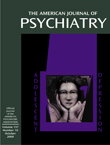γ-Hydroxybutyrate Withdrawal and Chloral Hydrate
Ms. A, a 20-year-old woman, came to the emergency room requesting help in discontinuing γ-hydroxybutyrate. Initially a casual user, she had escalated her use of γ-hydroxybutyrate to every few hours around the clock over the prior 4 months. Over several weeks she had lost 20 lb, and her mood had deteriorated into crying spells. Although she had experimented with other illicit substances, she had used only γ-hydroxybutyrate and marijuana in the previous 2 weeks.At her admission examination Ms. A’s pulse of 114 bpm was the only remarkable physical or neurological finding. A mental status examination found no notable abnormality in cognition, thought processing, or thought content. The results of her laboratory tests uncovered only a urine drug screening that was positive for benzodiazepines after she received a dose of lorazepam.By the second hospital day Ms. A’s mental status had begun to deteriorate. She responded continuously to hallucinations in all sensory modalities. She did not sleep and was oriented only to person. Doses of lorazepam and haloperidol, each up to 10 mg over 24 hours, had no clear effect on her insomnia, irritability, and hallucinations. Her persistent tachycardia was never higher than at admission. She developed mild diaphoresis, dilated pupils, and a moderate resting tremor.After Ms. A had 5 nights without sleep, little food intake, and no improvement in her dramatically high levels of delirium and psychosis, consideration was even given to general anesthesia. Before more extreme measures were taken we initiated a trial of chloral hydrate. After receiving 1500 mg, Ms. A fell asleep and slept almost 24 hours, during which she took two more doses of chloral hydrate, 1000 mg, as soon as she roused during that period.The next morning Ms. A was alert, fully oriented, amnestic for the period since admission, and free of hallucinations. She slept well the next few nights while taking chloral hydrate. During a brief recurrence of much milder hallucinations she responded minimally to a dose of haloperidol, but by discharge, after a 10-day hospitalization, they had disappeared, and she was sleeping well.
References
Information & Authors
Information
Published In
History
Authors
Metrics & Citations
Metrics
Citations
Export Citations
If you have the appropriate software installed, you can download article citation data to the citation manager of your choice. Simply select your manager software from the list below and click Download.
For more information or tips please see 'Downloading to a citation manager' in the Help menu.
View Options
View options
PDF/EPUB
View PDF/EPUBGet Access
Login options
Already a subscriber? Access your subscription through your login credentials or your institution for full access to this article.
Personal login Institutional Login Open Athens loginNot a subscriber?
PsychiatryOnline subscription options offer access to the DSM-5-TR® library, books, journals, CME, and patient resources. This all-in-one virtual library provides psychiatrists and mental health professionals with key resources for diagnosis, treatment, research, and professional development.
Need more help? PsychiatryOnline Customer Service may be reached by emailing [email protected] or by calling 800-368-5777 (in the U.S.) or 703-907-7322 (outside the U.S.).

